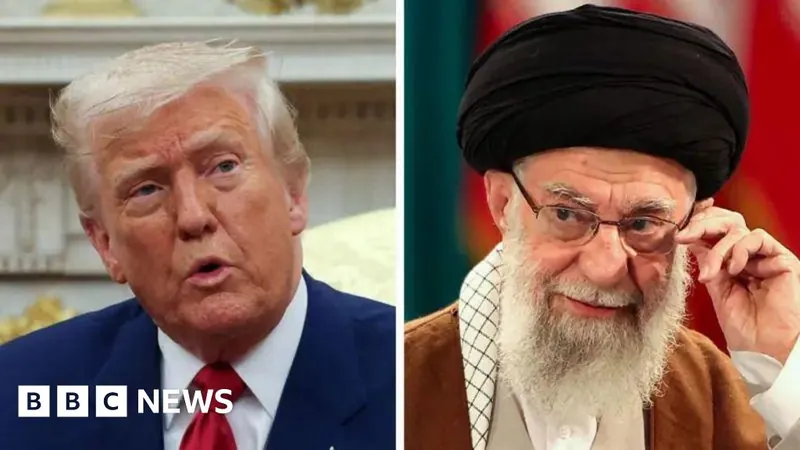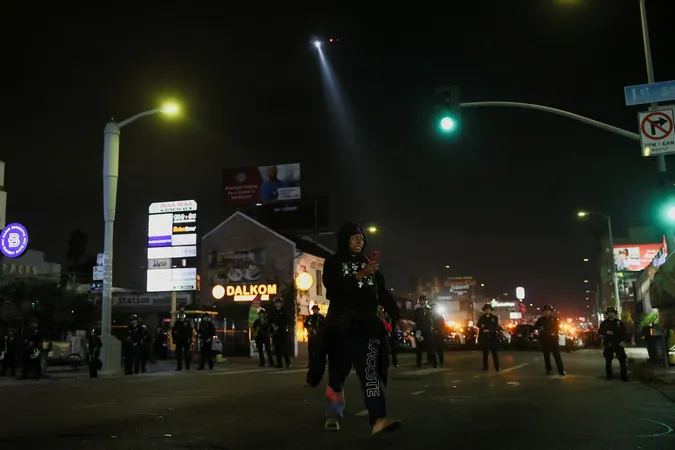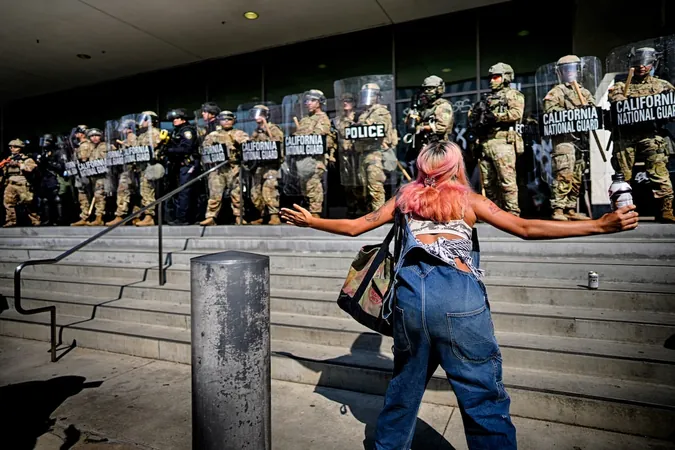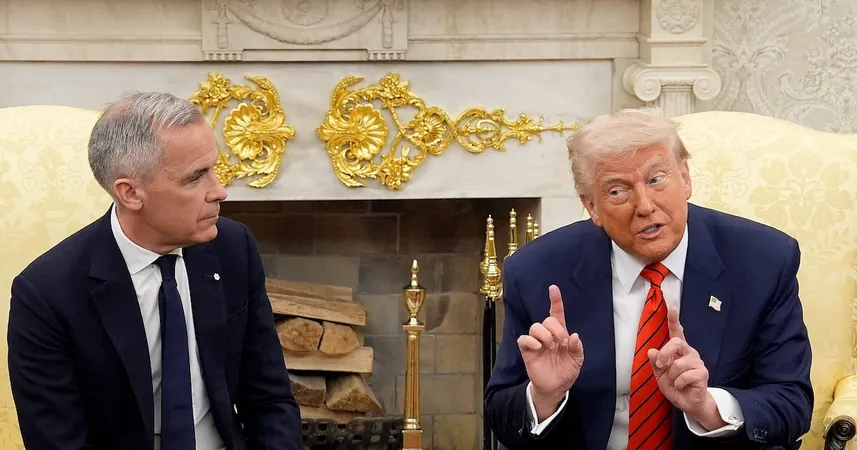
Nuclear Negotiations Between US and Iran Hit a Snag: What's Really Going On?
2025-05-01
Author: Charlotte
Iran-US Nuclear Talks Postponed: A Setback or Just Logistics?
In a surprising twist, the fourth round of negotiations regarding Iran's nuclear program between the US and Iran has been postponed, raising eyebrows and questions about the future of the talks.
Iranian officials stated that the meeting, which was scheduled to take place this Saturday in Rome alongside Omani facilitators, was delayed for what they described as 'logistical and technical reasons.' The US, however, added that the timing of this meeting had not been finalized, leaving many to wonder what this means for the ongoing dialogue.
Tensions Escalate Amidst New Sanctions
The postponement comes on the heels of escalating tensions, particularly following President Trump's warning about potential action against entities purchasing Iranian oil or petrochemicals. This follows fresh sanctions imposed this week targeting companies with alleged ties to Tehran.
Since withdrawing the US from the 2015 nuclear deal in 2018, Trump has been vocal about his intent to negotiate a 'better' agreement. He previously hinted at military action if negotiations, which resumed in April, falter.
Iran Stays Committed to Negotiations, But Doubts Emerge
Despite challenges, Iran's Foreign Minister Seyed Abbas Araghchi reiterated Tehran's unwavering commitment to achieving a fair resolution. On social media, he expressed a determination to secure a deal that both lifts sanctions and guarantees the peaceful nature of Iran’s nuclear program.
While a US State Department representative noted that the next round of talks is expected 'in the near future,' Oman’s foreign minister indicated that a new date would be set once multiple sides agree.
What's at Stake? Sanctions and Regional Conflicts
Though the postponement is unlikely to signal a breakdown in talks, doubts are surfacing within Iran regarding their effectiveness, especially considering new sanctions and stronger US stances. These measures, part of Trump’s 'maximum pressure' policy, aim to curtail Iran's involvement in regional conflicts and nuclear ambitions.
Recent statements from Iranian officials have labeled these sanctions as evidence of America's inconsistent and untrustworthy behavior, fueling skepticism about Washington's intentions.
A Complex Web: Military Threats and Regional Dynamics
The dialogue is further complicated by US military threats targeting Iranian support for allies such as the Houthis in Yemen, with US Defense Secretary Pete Hegseth warning that Iran would 'pay the consequences' for its actions.
As the Houthis align themselves with Iran against the US and its allies, tensions in the region continue to escalate, threatening the stability of ongoing negotiations.
Looking Ahead: Nuclear Aspirations vs. Diplomatic Efforts
While Trump seeks to curb Iran's nuclear pathways, some within his administration advocate for a complete dismantling of Iran's enrichment capabilities. Iran, on its part, insists its program is for peaceful purposes and seeks a deal that offers sanctions relief without complete abandonment of its nuclear aspirations.
As the international community watches closely, the stakes remain high—especially as Iran grapples with some of the toughest sanctions in history, second only to those imposed on Russia.
Stay tuned as we continue to bring you updates on this evolving story.









 Brasil (PT)
Brasil (PT)
 Canada (EN)
Canada (EN)
 Chile (ES)
Chile (ES)
 Česko (CS)
Česko (CS)
 대한민국 (KO)
대한민국 (KO)
 España (ES)
España (ES)
 France (FR)
France (FR)
 Hong Kong (EN)
Hong Kong (EN)
 Italia (IT)
Italia (IT)
 日本 (JA)
日本 (JA)
 Magyarország (HU)
Magyarország (HU)
 Norge (NO)
Norge (NO)
 Polska (PL)
Polska (PL)
 Schweiz (DE)
Schweiz (DE)
 Singapore (EN)
Singapore (EN)
 Sverige (SV)
Sverige (SV)
 Suomi (FI)
Suomi (FI)
 Türkiye (TR)
Türkiye (TR)
 الإمارات العربية المتحدة (AR)
الإمارات العربية المتحدة (AR)